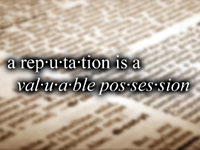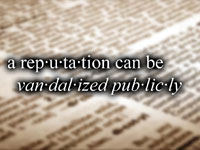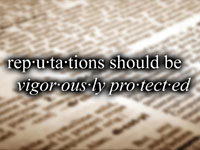



 Rabbi Joseph Telushkin comments: Over the past decade, whenever I have lectured throughout the country on the powerful, and often negative, impact of words, I have asked audiences if they can go for twenty-four hours without saying any unkind words about, or to, anybody. Invariably, a minority of listeners raise their hands signifying yes, some laugh, and quite a large number call out, no! I respond by saying, "Those who can't answer yes must recognize that you have a serious problem. If you cannot go for twenty-four hours without smoking, you are addicted to nicotine. If you cannot go twenty-four hours without a drink, you're most likely an alcoholic. Similarly, if you cannot go for twenty-four hours without saying unkind words about others, then you have lost control over your tongue."
Rabbi Joseph Telushkin comments: Over the past decade, whenever I have lectured throughout the country on the powerful, and often negative, impact of words, I have asked audiences if they can go for twenty-four hours without saying any unkind words about, or to, anybody. Invariably, a minority of listeners raise their hands signifying yes, some laugh, and quite a large number call out, no! I respond by saying, "Those who can't answer yes must recognize that you have a serious problem. If you cannot go for twenty-four hours without smoking, you are addicted to nicotine. If you cannot go twenty-four hours without a drink, you're most likely an alcoholic. Similarly, if you cannot go for twenty-four hours without saying unkind words about others, then you have lost control over your tongue." 1. A Reputation is a Valuable Possession
1. A Reputation is a Valuable Possession 2. A Reputation can be Vandalized Publicly
2. A Reputation can be Vandalized Publicly 3. Reputations should be Vigorously Protected
3. Reputations should be Vigorously Protected Three Monkeys: Remember these little guys? Maybe we should strive to live more like them.
Three Monkeys: Remember these little guys? Maybe we should strive to live more like them.